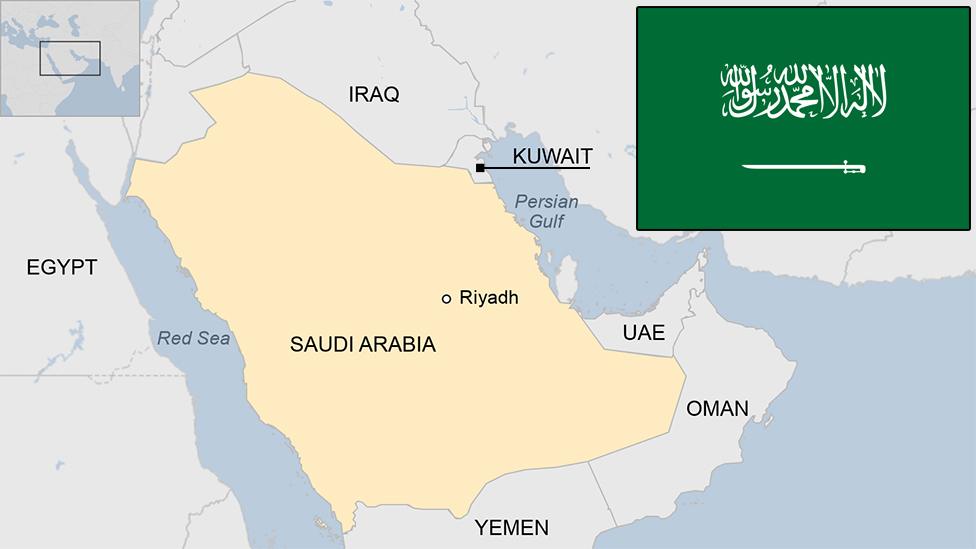Saudi Arabia's King Salman breaks with tradition
- Published
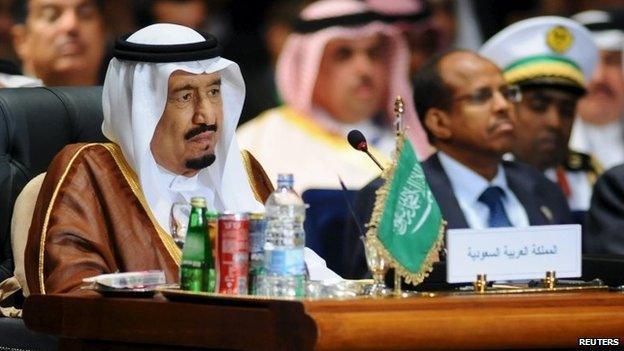
King Salman is firmly turning the page on the era of his predecessor
For Saudi Arabia, a country known for its conservative ways and its dislike of sudden and abrupt change, these past few weeks have been extraordinary.
The speed and range of decisions taken by King Salman since succeeding the late King Abdullah in January are breathtaking by Saudi standards and unprecedented.
In foreign policy, the kingdom's cautious approach in responding to regional crises and its preference for quiet diplomacy have been thrown out of the window by its decision to launch air strikes on Yemen.
Saudi Arabia is suddenly in the unusual role of taking the lead in what is widely perceived in the region as a military campaign backed by Sunni Arab states to block Shia Iranian expansionism.
Generational change
But the changes inside the kingdom have been no less dramatic.
In January came the surprise appointment of Interior Minister Prince Mohammed bin Nayef as deputy crown prince behind Crown Prince Muqrin.
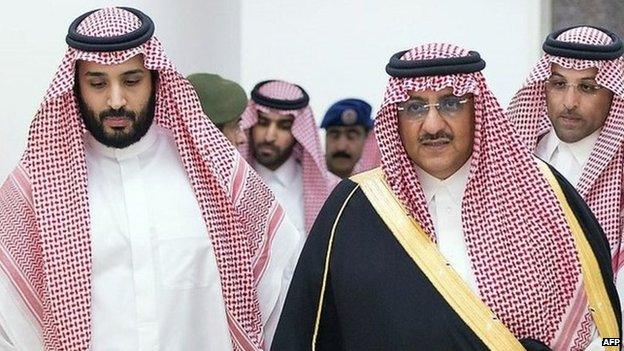
The king's son (left) has been named deputy crown prince, and his powerful nephew (right) crown prince
Prince Mohammed was the first of the grandsons of Ibn Saud, the founder of the kingdom, to step onto the ladder leading to the throne.
At the same, King Salman chose his youngest son, Prince Mohammed bin Salman, to take over the defence portfolio.
These appointments were momentous enough, but they have now been followed by yet more startling changes.
Out goes Crown Prince Muqrin, with Mohammed bin Naif taking his place as heir to the throne, and Mohammed bin Salman becoming deputy crown prince.

Overnight, a country that has become accustomed to being ruled by kings in their 70s or 80s faces the prospect of a monarch-in-waiting in his 50s and his successor in his 30s.
The assumption for years had been that the younger generation would be eased slowly into line for the monarchy over a long period.
Indeed there was speculation that King Abdullah had selected Prince Muqrin to succeed King Salman precisely so that the former could supervise this delicate generational transition.
The new king, with the stroke of his pen, has done away with the need for such a role and Prince Muqrin has gone.
Iran fears
Another major change to the Saudi landscape is the replacement of the veteran foreign minister, Prince Saud al-Faisal, after four decades in the job.
His departure because of ill health is not surprising. But what was not expected was the appointment of a commoner to the post for the first time.
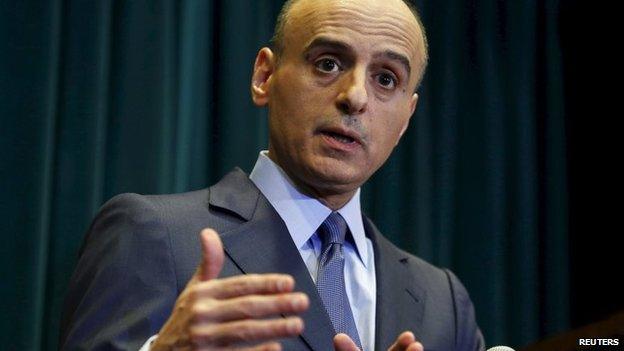
The new foreign minister, Adel al-Jubeir, is not a member of the royal family
The new foreign minister is Adel al-Jubeir, Saudi Arabia's ambassador to the United States.
The likelihood is that he has been chosen precisely because of his knowledge of the workings of the world's sole superpower.
Saudi Arabia and other Gulf states are concerned at the prospect of an American-endorsed agreement between the international community and Iran over the nuclear issue that might lead to greater Iranian influence in the region.
For, as the unprecedented intervention in Yemen shows, this tops the concerns of Saudi leaders at present.
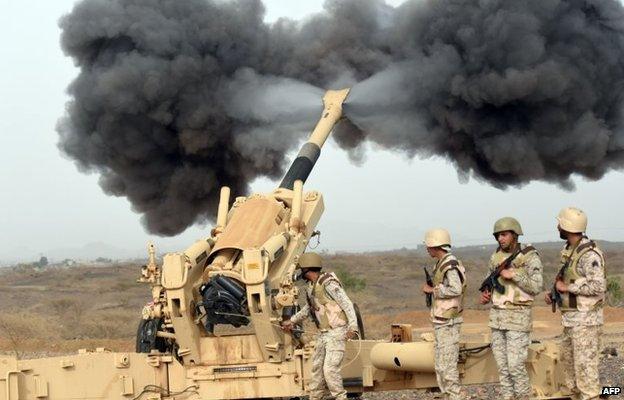
A Saudi-led coalition has launched a military campaign to restore Yemen's exiled president
Among the latest decrees from King Salman was one awarding a month's bonus salary to all members of the military and security establishments.
At the same time, the rapid promotion of the two key figures in the Yemen campaign, the interior and defence ministers, sends a signal to anyone within the ruling family who might be questioning the wisdom of the military operation that the leadership is unwaveringly committed to the strategy it has chosen.
There may well be murmurs of dissent in private within the ruling family.
But they are more likely to come from senior princes who have been overlooked in recent appointments or from those who will regard the allocations of top positions as having been made too fast and without the chance for family consensus to be achieved.
As if anticipating this reaction, the king's decree making his youngest and relatively unknown son deputy crown prince stated that the promotion had the backing of the majority of the members of the family's Allegiance Council, which is designed to ensure a smooth succession process.
New reality
Saudi Arabia has witnessed a huge break with tradition and the conservative assumptions of the past no longer apply.

King Salman and his allies fear what they see as expanding Iranian influence in the region
The king and his young advisers may well have concluded that the old ways are no longer suitable for the challenges that the kingdom faces at home and in the region.
Over recent days dozens of people have been arrested and accused of planning acts of terror in the name of Islamic State (IS).
Al-Qaeda is exploiting the chaos in Yemen to strengthen its base there for attacks on the kingdom, and Iran is playing a major role in Iraq, Syria and elsewhere.
Then there is the continuing low price of oil at a time of colossal public expense, not least on the war in Yemen.
The CEO of state oil giant Saudi Aramco, Khaled al-Faleh, has been made company chairman in place of Petroleum Minister Ali Naimi, with the expectation that the latter will be replaced in the coming months, possibly by another son of the king, Deputy Oil Minister Abdel Aziz bin Salman.
Speculation is nothing new. But Saudis are having to come to terms with the startling reality that these days almost anything is possible.
Gerald Butt is a Middle East analyst and regional adviser to Oxford Analytica, a consultancy firm
- Published23 January 2015
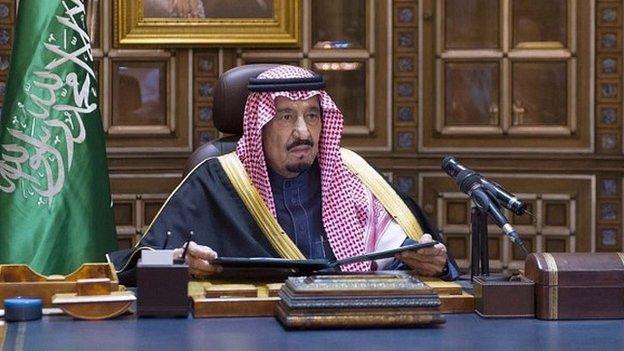
- Published23 January 2015
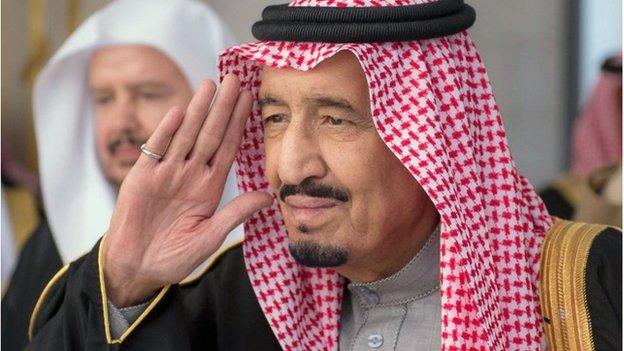
- Published10 March 2020
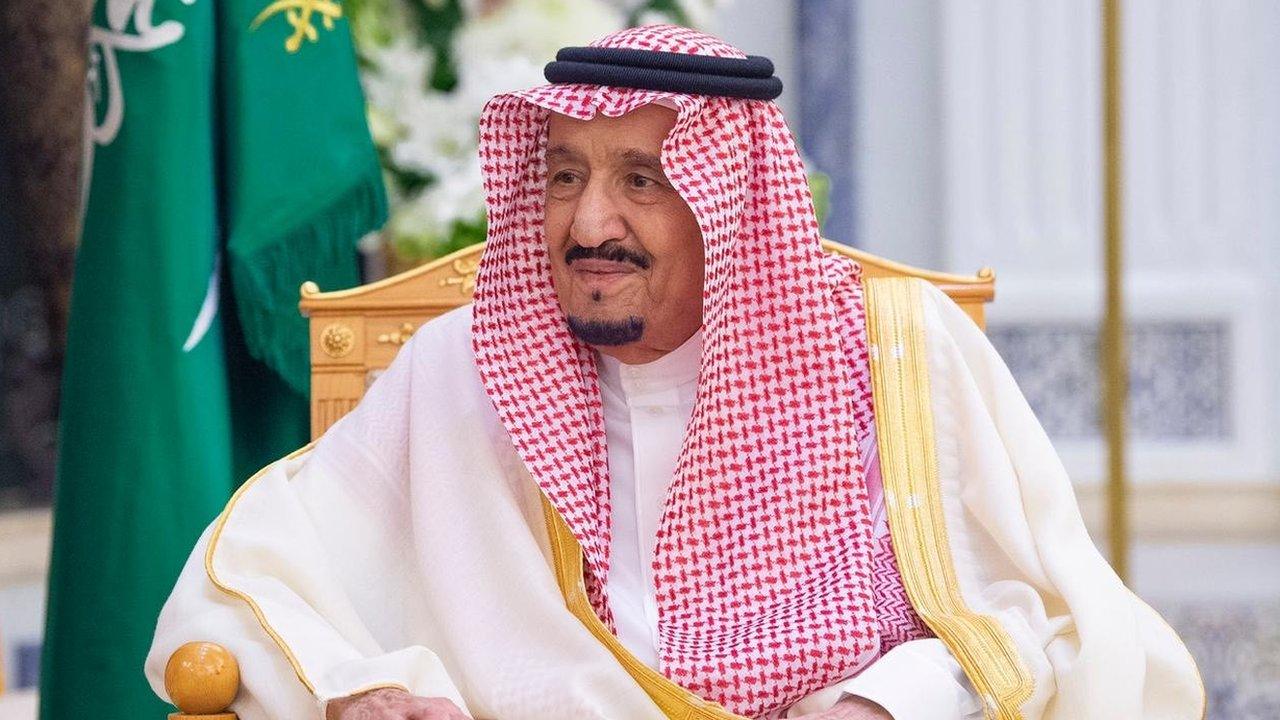
- Published29 August 2023
